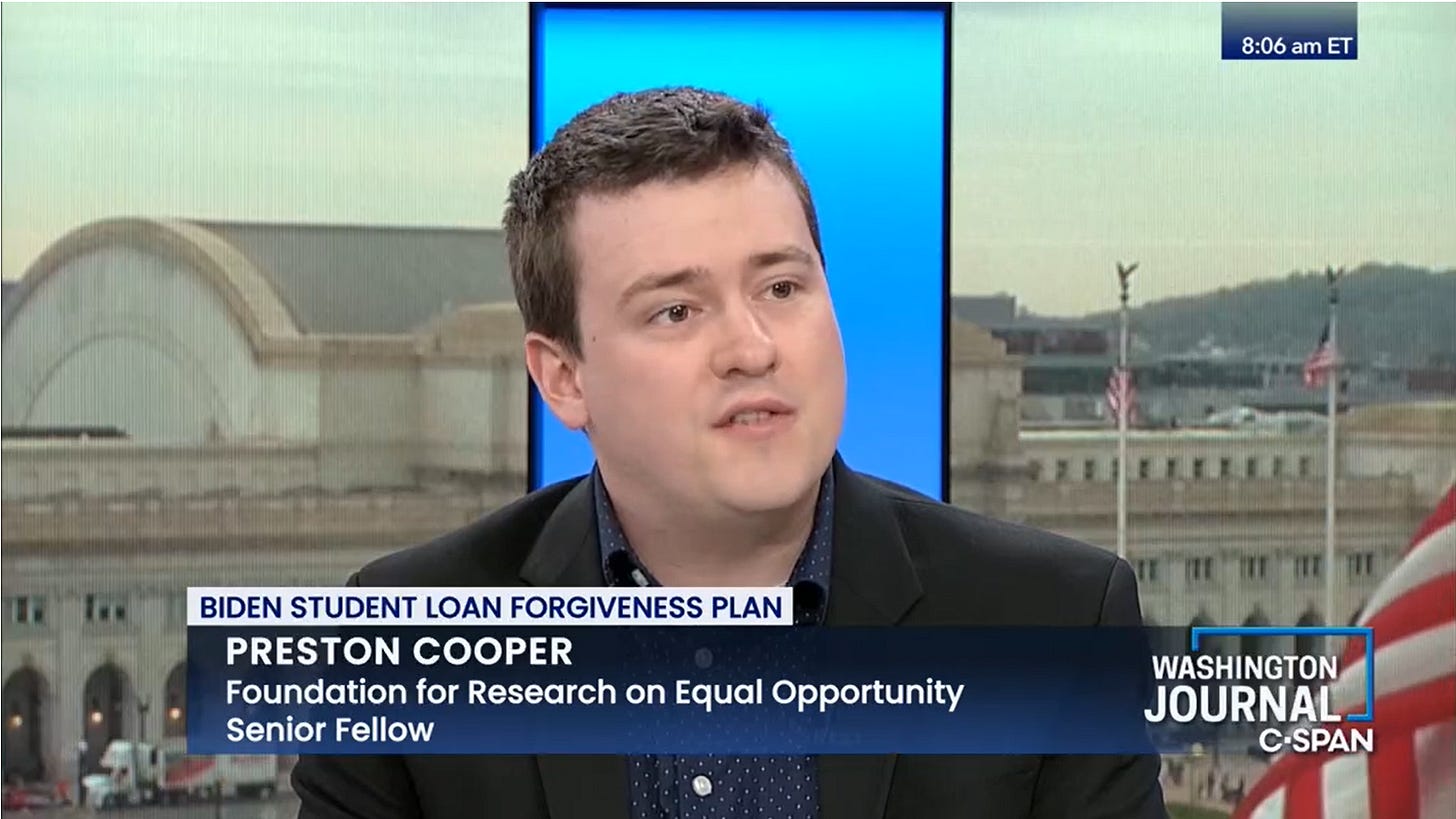After November, what are the prospects for freedom and progress?
Plus: Yet another bad student loan forgiveness plan; a “Green New Deal” for public housing; and physician practice mergers that raise prices and threaten quality
FREOPP looks to the future: As the country grapples with historic levels of debt, ever-increasing inflation, a broken health care system, and contentious debates about immigration, foreign affairs, and more, it is tempting to wonder whether Americans can still come together about anything that matters. Again and again, however, research finds that we have more in common than we think. Americans are united in believing that our country should be a place where everyone has a fair shot at success and that economic and personal freedom are a big part of how we achieve it. That’s why, once again, FREOPP is gathering with hundreds of leaders in policy, journalism, philanthropy, and law to discuss the state of—and the prospects for—freedom and progress in America, especially in light of the results of November’s elections. Please save the date and plan to join us for the 2024 Freedom & Progress Conference, November 17-19 at the Park Hyatt in Washington, D.C.
Latest student loan cancellation announcement won’t fix deeper issues: Meanwhile, as the candidates court voters in the run-up to the election, the Education Department announced a new, $150 billion component of President Biden’s expansive student loan cancellation agenda. As FREOPP Senior Fellow Preston Cooper describes in Forbes, the plan relies on the novel (and dubious) legal theory that the Secretary of Education has unlimited authority to cancel federal student loans, and though it restricts benefits to those who meet certain conditions, 28 million borrowers will qualify. Overall, this latest proposal highlights again the dire need for reform of America’s student loan program. Thanks to government policy that gives loans regardless of ability to pay, then creates plenty of options to avoid making good on obligations, millions of people now owe more than they did when they entered a repayment plan. Fixing this problem means changing the system, not demanding that taxpayers write ever-larger checks.
→ Want more information on why this debt-forgiveness plan won’t work—and what we should do to fix student loans instead? Watch Preston’s recent analysis on C-SPAN’s Washington Journal.
No, the federal government shouldn’t be building housing: When Representative Alexandria Ocasio-Cortez (D-NY) introduced the “Green New Deal for Public Housing Act” earlier this spring, she explained that the purpose was to rehabilitate public housing and make it more energy efficient. While making old buildings more energy efficient is a worthwhile goal, this legislation would repeal other federal legislation that ended the federal government’s efforts to own and operate housing after decades of failure and billions of wasted dollars. FREOPP Research Fellow Roger Valdez argues that, instead of bringing back a failed model, legislators should explore new and innovative pathways like a “right to buy” approach, where residents have the option to own their apartments. These alternative policies could empower individuals, revitalize communities, and transform public housing from a perpetual government liability into a source of wealth building for low-income families.
Specialty physician practice consolidation raises prices and threatens quality: Between 2018 and 2023, there were 428 hospital and health system mergers in the U.S., and the share of community hospitals that become part of a larger system increased. FREOPP Visiting Fellow Grant Rigney explains that, although this kind of consolidation is presented as a way to improve efficiency, reduce costs, and keep struggling providers in business, the evidence suggests that in practice it increases prices without increasing quality. This creates special concerns when it comes to the mergers of small, sub-specialty practices such as oncology and gastroenterology, which currently fall below the threshold of reporting to the Federal Trade Commission and Department of Justice. As with large mergers, the research indicates that consolidation in these practices leads to substantial increases in prices, and there is a concerning lack of data on patients outcomes. To ensure that mergers benefit patient care, Grant argues that policymakers should lower the reporting threshold and gather more data about what happens when specialists consolidate.
Thanks for keeping up with FREOPP, and have a great weekend!
FREOPP’s work is made possible by people like you, who share our belief that equal opportunity is central to the American Dream. Please join them by making a donation today.



